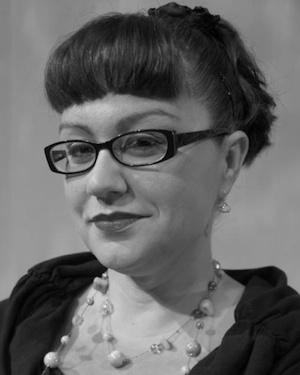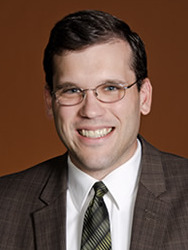2015-2016 Wimmer Faculty Fellows
We are pleased to announce the 2015-2016 Wimmer Faculty Fellows. These fellowships are made possible by a grant from the Wimmer Family Foundation and are designed for junior faculty members interested in enhancing their teaching through concentrated work designing or re-designing a course, innovating new materials, or exploring a new pedagogical approach. Fellows work in close collaboration with Eberly Center colleagues and receive a stipend to acknowledge the work it takes to improve one's effectiveness as an educator.
 |
Daragh Byrne Through making and makerspaces, CMU’s Integrative Design, Arts, and Technology (IDeATe) Network connects students from across diverse disciplines via collaborative design experiences. As a Wimmer Fellow, Daragh is iterating on the “IDeATe Gallery,” an online platform he created to support learning between class meetings. Students use the IDeATe Gallery to document their tech-arts project prototypes as well to give and receive peer feedback their work. The Gallery allows Daragh to monitor the progression of student work and adjust his classroom teaching accordingly. Additionally, students can explore their peers’ work and ideas, absent the time limitations imposed by face-to-face studio critiques. Daragh is collaborating with Eberly colleagues on the pedagogical implementation of this technology across four courses to support students’ development of critique and communication skills. His work includes creating a rubric to measure changes in students’ critique skills in the IDeATe Gallery in response to different pedagogical interventions. |
 |
Ricky Law Ricky is redesigning his “Global Histories” course, a large, introductory course enrolling undergraduates from a variety of disciplines and employing a large number of graduate teaching assistants. Ricky’s proposed redesign addresses both of these student populations. First, he plans to integrate film into his course so that students can use it as a medium for both examining and portraying the past. The Eberly Center will assist Ricky in developing instructional materials and assignments to achieve this goal. Second, Ricky will implement a course-specific, pedagogical training system for the graduate teaching assistants leading discussion sections in the course. Eberly colleagues will provide support to Ricky and the graduate students in the design and implementation of this system. |
 |
Molly McCarter Molly’s project supports the School of Drama’s mission to “produce theater artists who will become innovators and leaders.” Molly is working closely with Eberly Center colleagues to articulate measurable learning objectives regarding leadership skills and to design project-based assignments and classroom activities. These course materials will provide opportunities for students to self-diagnose their leadership strengths and growth areas, confront ethical dilemmas regarding leadership, adapt research-based leadership principles from other disciplines, and develop innovative, strategies to evolve their future leadership practices. She will implement these teaching approaches in a new course within the Production, Technology, & Management program that emphasizes leadership studies in the context of performing arts productions management. |
 |
Constantine (Costa) Samaras Costa aims to design a digital, open-source textbook for his Civil and Environmental Engineering course entitled “Climate Change Adaptation.” Because the content for this course is continuously evolving, Costa seeks to deliver foundational course materials through a web-based medium that is flexible and easy to update. He will structure the content of his textbook according to modules, with each online module incorporating elements of a flipped classroom design. For example, modules will include online exercises to actively engage learners and hold them accountable for their pre-class learning. Costa will also develop an interactive in-class exercise for each module, to extend and deepen student learning. The Eberly Center will assist Costa in the development and implementation of each course module, especially regarding learning objectives, instructional methods, and assessments. |
 |
Bryan Webler In “Structure of Materials,” a core course taken by all Materials Science and Engineering students, Bryan seeks to maximize students’ opportunities to practice using computational methods, a curriculum-level priority across second- and third-year courses. Specifically, he aims to implement learning modules that incorporate various software programs and visualization tools to improve student understanding of crystal structure via application of computational methods. By measuring student performance and soliciting student feedback, Bryan plans to evaluate the impact of these modules on student learning and students’ confidence in their ability to employ computational methods. Data will be used to inform and future teaching of computational methods across courses. Bryan will partner with Eberly Center colleagues to develop direct assessments within each module for his computational learning objectives as well a survey instrument to measure changes in student perceptions and attitudes. |